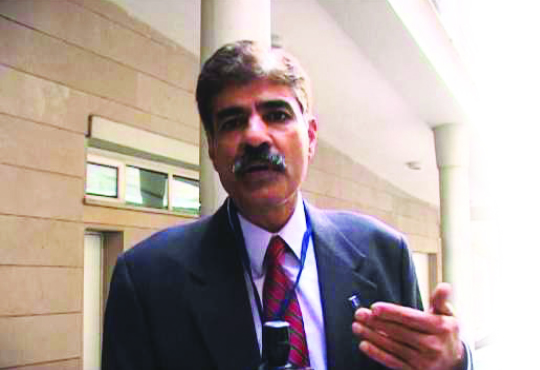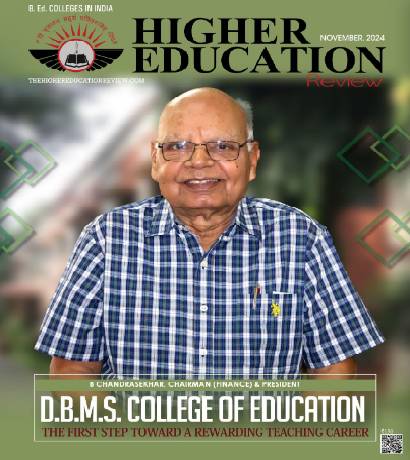The Need Of Re-Designing Conventional Mode Of Education

Pankaj Jalote, Director, Indraprastha Institute of Information Technology (IIIT) Delhi
There are some institutes which are taking serious steps in re-engineering their curriculum as well as teaching methodology, but the ratio of such colleges is not very impressive as they can be counted on fingertips. Very few institutes are working towards the new skills development which is essential for motivating the students to explore and fulfill the demands of the recent changes in the globalized environment of business and technology. Hence, there is an immediate need to introduce desired changes in the education system of our country, especially in the engineering colleges and ITIs.
An approach is more important than concepts and content because the right approach turns everything in your favor and delivers what you exactly demand. So, the foremost responsibility of these universities and colleges is to make their working approach more practical, futuristic, and result oriented rather than adopting concepts without understanding their purpose and implications.
Today online education is a boon compared to the regular mode of studies; instead, it provides supplementary knowledge and skills to students who want to keep themselves ahead of the crowd. Within higher education, new technologies have enormous potential to effect change. They enable universities to meet a broader range of learners' needs, adapting traditional teaching methods and offering a mix of face-to-face and online learning possibilities that allow individuals to learn anywhere, anytime.
Undoubtedly, the formal campus learning is the core of academics, and it will never perish. Whereas, all other methods or learning and skill development are complementary in purpose and their role is not beyond extending the scope of traditional learning.
It's a necessity; now for students to have laptops and internet connections. Yes, sometimes they cause a distraction, but to refrain them from using advanced tools of learning won't help anyway. Technology makes learning smart as well as interesting if one use it sensibly. Technology is going to make learning simpler, easier, interesting, and effective. The share of AI, robotics, and simulation techniques is going to reshape the future of education not only in the developed world but also in the emerging economies such as India and China.
I would advise an institute's management who is looking to improve their pedagogy first of all; they have to introspect again their vision, mission, aim, and objectives. Secondly, they must accurately analyze that how close are their current programmes/initiatives with institute's goals and objectives. Then, they should prioritize amelioration schemes as per their structural and functional capacities. (As told to HER Team).
Pankaj Jalote, Director
A B.Tech. from IIT Kanpur, MS from Pennsylvania State University, and Ph.D. from University of Illinois at Urbana-Champaign, Pankaj Jalote is presently the Director of Indraprastha Institute of Information Technology (IIIT) Delhi. He is on the Board of Advisors of many software companies in India and USA, is a Technical Advisory Board member for Microsoft Research, India, has served on the Editorial Board of IEEE Transactions on Software Engineering, and International Journal of Empirical Software Engineering.
An approach is more important than concepts and content because the right approach turns everything in your favor and delivers what you exactly demand. So, the foremost responsibility of these universities and colleges is to make their working approach more practical, futuristic, and result oriented rather than adopting concepts without understanding their purpose and implications.
Today online education is a boon compared to the regular mode of studies; instead, it provides supplementary knowledge and skills to students who want to keep themselves ahead of the crowd. Within higher education, new technologies have enormous potential to effect change. They enable universities to meet a broader range of learners' needs, adapting traditional teaching methods and offering a mix of face-to-face and online learning possibilities that allow individuals to learn anywhere, anytime.
Undoubtedly, the formal campus learning is the core of academics, and it will never perish. Whereas, all other methods or learning and skill development are complementary in purpose and their role is not beyond extending the scope of traditional learning.
It's a necessity; now for students to have laptops and internet connections. Yes, sometimes they cause a distraction, but to refrain them from using advanced tools of learning won't help anyway. Technology makes learning smart as well as interesting if one use it sensibly. Technology is going to make learning simpler, easier, interesting, and effective. The share of AI, robotics, and simulation techniques is going to reshape the future of education not only in the developed world but also in the emerging economies such as India and China.
I would advise an institute's management who is looking to improve their pedagogy first of all; they have to introspect again their vision, mission, aim, and objectives. Secondly, they must accurately analyze that how close are their current programmes/initiatives with institute's goals and objectives. Then, they should prioritize amelioration schemes as per their structural and functional capacities. (As told to HER Team).
Pankaj Jalote, Director
A B.Tech. from IIT Kanpur, MS from Pennsylvania State University, and Ph.D. from University of Illinois at Urbana-Champaign, Pankaj Jalote is presently the Director of Indraprastha Institute of Information Technology (IIIT) Delhi. He is on the Board of Advisors of many software companies in India and USA, is a Technical Advisory Board member for Microsoft Research, India, has served on the Editorial Board of IEEE Transactions on Software Engineering, and International Journal of Empirical Software Engineering.

